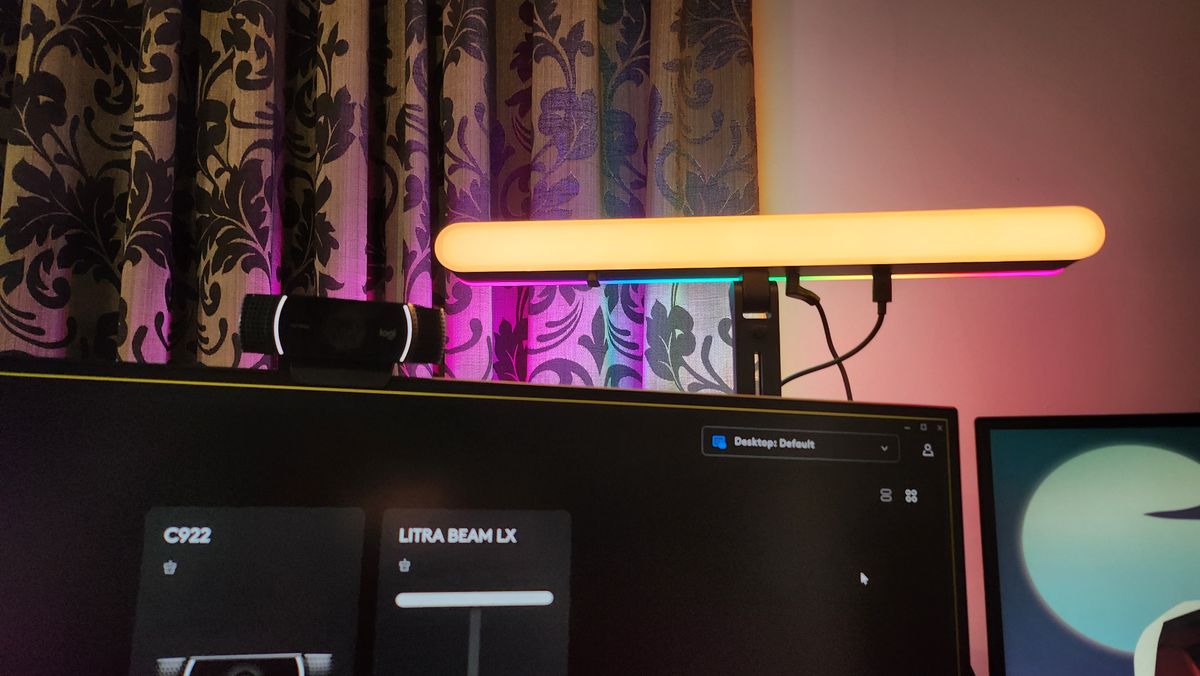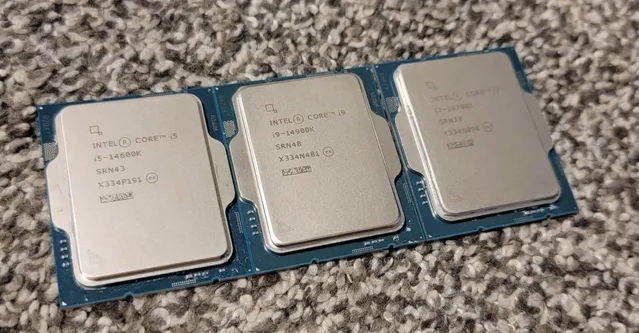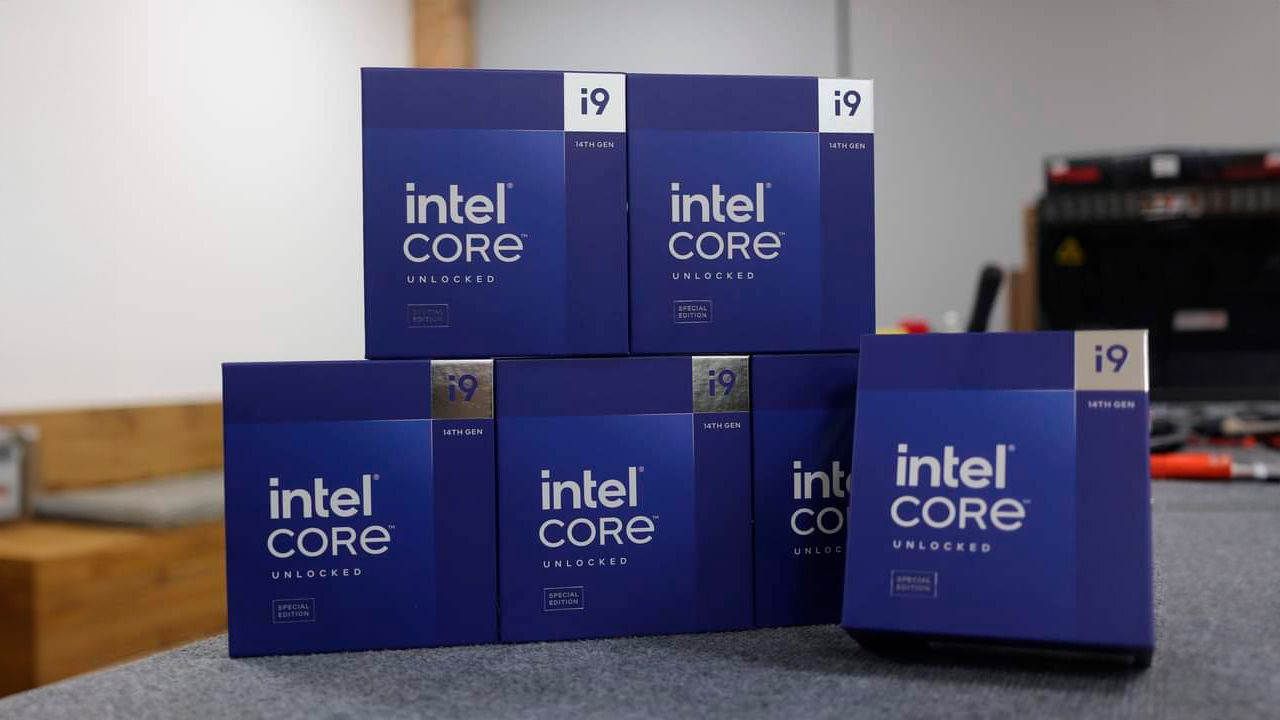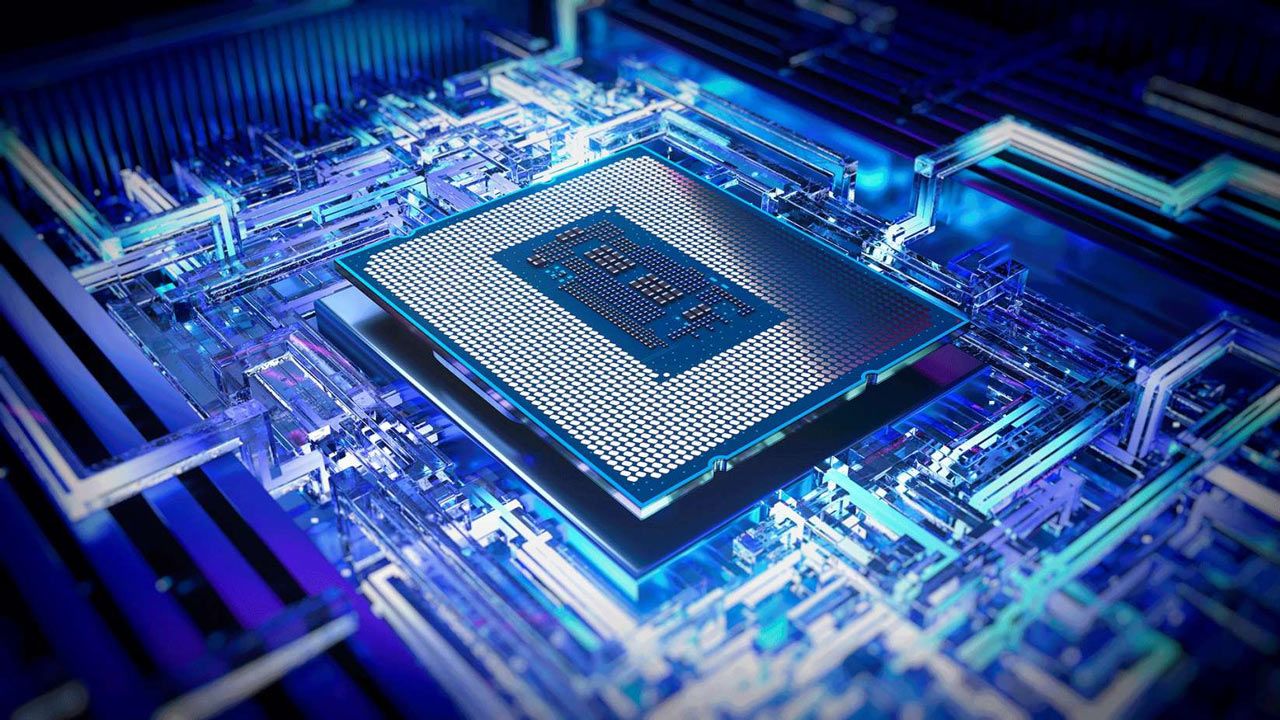2CR4ZY
Forumski Apotekar

From 2Tb to 100TB: The Next Leap in SSDs Technology
Explore the future of storage with WD's 2Tb QLC NAND flash chip, paving the way for 100TB SSDs and beyond.


Intel is selling defective 13-14th Gen CPUs
My team at Alderon Games, working on the multiplayer dinosaur survival game Path of Titans, has been encountering significant problems with Intel CPU stability. These issues, including crashes, instability, and memory corruption, are confined to the 13th and 14th generation processors. Despite all released microcode, BIOS, and firmware updates, the problem remains unresolved.
We have identified failures in five main areas:
Over the last 3–4 months, we have observed that CPUs initially working well deteriorate over time, eventually failing. The failure rate we have observed from our own testing is nearly 100%, indicating it's only a matter of time before affected CPUs fail. This issue is gaining attention from news outlets and has been noted by Fortnite and RAD Game Tools, which powers decompression behind Unreal Engine.
- End Customers: Thousands of crashes on Intel CPUs on 13th and 14th Gen CPUs in our crash reporting tools.
- Official Dedicated Game Servers: Experiencing constant crashes, taking entire servers down.
- Development Team: Developers using these CPUs face frequent instability while building and working on the game. It can also cause SSD and memory corruption.
- Game Server Providers: Hosting community servers with persistent crashing issues.
- Benchmarking Tools: Decompression and memory tests unrelated to Path of Titans also fail.
Users are also receiving misleading error messages about running out of video driver memory, despite having sufficient memory.
Actions We Are Taking
To prevent further harm to our game, we are implementing the following measures:
- Server Migration: We are swapping all our servers to AMD, which experience 100 times fewer crashes compared to Intel CPUs that were found to be defective.
- Hosting Recommendations: We advise anyone hosting Path of Titans servers or selling game servers to avoid purchasing or using 13th and 14th gen Intel CPUs.
- In-Game Notifications: We are adding a popup message in-game to inform users with these processors about the issue. Many users are currently unaware of why their game is crashing and what they can do about it.

Posted Tuesday at 02:10 PM
- Warframe Staff

While investigating crashes in Warframe we came across a particular series that were not crashing in our code (they were crashing in nvgpucomp64.dll, a component of Nvidia drivers). After aggregating hundreds of reports from helpful players we discovered a pattern: almost all were coming from systems with 13th and 14th generation Intel processors.


Nope, trenutno je to 7800X3D.i9 da ide dole, pa lepo da ga uzmem, posto je i dalje najbolji proc za igre koji postoji.

Kao da nisi gledao sta kacim zadnjih par meseci.To u igrama nije slucaj, tako da nas uglavnom ne kaci nista.









Leaked internal reports allegedly reveal Intel's instability problems are not over — elevated voltages could be only one of the causes of CPU crashing
Intel announced a few days ago that elevated voltage levels are the root cause of Raptor Lake's instability issues. The company will address this problem with a microcode update in mid-August. However, German publication Igor's Lab claims that Intel didn't share the whole story and is still investigating other root causes of Raptor Lake instability.
According to the publication's sources, elevated voltages aren't the true root cause—or perhaps the only root cause. The claims only somewhat contradict Intel's official statement, which mentions elevated operating voltage as the root cause of the issues but does say that validation work is ongoing to ensure the microcode patch addresses the entirety of the issue.
Igor's report also highlighted details of the elevated voltage behavior causing Raptor Lake instability and what precisely Intel is adding to its mid-August microcode update. Intel has purportedly observed a significant increase in minimum operating voltage (Vmin) across multiple cores on unstable chips returned from customers. The elevated minimum operating voltage is purportedly caused by the "elevated voltage, high frequency, and elevated temperature" conditions that Intel has observed in chips that have been returned.
This unsafe minimum operating voltage affects the chip even at idle conditions. Intel has observed sporadic elevated voltages when Raptor Lake chips resume low-power states to execute background operations before entering a low-power state again.
To fix the issue, Intel's microcode update will reportedly limit VID requests above 1.55V to rectify the voltage-related problems. This change will not impact performance much. However, Intel says that further analysis is required to see whether or not the mid-August microcode update will fully mitigate all instability issues due to the reasons above.
Here's a snippet of the purportedly leaked communications given to Igor's Lab:
– Intel observes a significant increase to the minimum operating voltage (Vmin) across multiple cores on returned affected processors from customers.
– This increase is similar in outcome to parts subjected to elevated voltage and temperature conditions for reliability testing.
– Factors contributing to this Vmin increase include elevated voltage, high frequency, and elevated temperature.
– Even under idle conditions at relatively cool temperatures, sporadic elevated voltages are observed when the processor is resumed from low power states in order to service background operations before entering a low power state again.
– At a sufficiently high voltage, these short-duration events can accumulate over time, contributing to the increase in Vmin.
– Intel analysis indicates a need to reduce the maximum voltage requested by the processor in order to reduce or eliminate accumulated exposure to voltages which may result in an increase to Vmin.
– While Intel has confirmed elevated voltages impact the increase in Vmin, investigation continues in order to fully understand root cause and address other potential aspects of this issue.
- This microcode update, once validated and released, may not address existing systems in the field with instability symptoms.
- Systems which continue to exhibit symptoms associated with this issue should have the processor returned to Intel for RMA.


